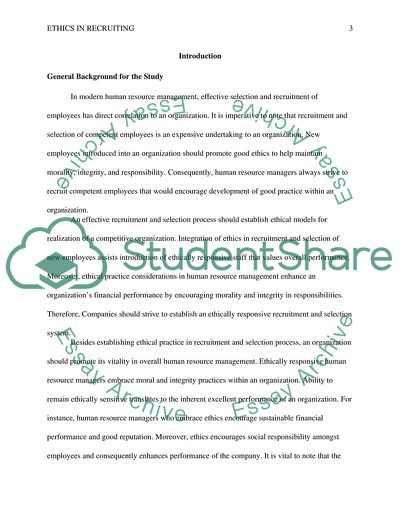Cite this document
(Ethics in Recruiting Research Proposal Example | Topics and Well Written Essays - 2750 words, n.d.)
Ethics in Recruiting Research Proposal Example | Topics and Well Written Essays - 2750 words. https://studentshare.org/ethics/1861954-ethics-in-recruting
Ethics in Recruiting Research Proposal Example | Topics and Well Written Essays - 2750 words. https://studentshare.org/ethics/1861954-ethics-in-recruting
(Ethics in Recruiting Research Proposal Example | Topics and Well Written Essays - 2750 Words)
Ethics in Recruiting Research Proposal Example | Topics and Well Written Essays - 2750 Words. https://studentshare.org/ethics/1861954-ethics-in-recruting.
Ethics in Recruiting Research Proposal Example | Topics and Well Written Essays - 2750 Words. https://studentshare.org/ethics/1861954-ethics-in-recruting.
“Ethics in Recruiting Research Proposal Example | Topics and Well Written Essays - 2750 Words”. https://studentshare.org/ethics/1861954-ethics-in-recruting.


